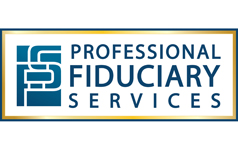In the previous sessions we discussed the legal documents needed to have a good estate plan. In this session we discuss the people you will need to carry out your estate plan. Theoretically you could have 3 different people for each document (12 individuals.) For example, in your Will you could name your Executor and two successor Executors in the event the person named as primary is not able or does not want to serve as Executor. This scenario is the same for your Durable Power of Attorney for Finances and your Advanced Health Care Directive – your primary agent and at least two successor agents (definitely recommend at least two successor agents.) For your Living Trust we recommend two successor trustees. For your Living Trust give your successor trustee (trust them enough to be your trustee) the power to name a successor trustee (called a Power of Appointment).
The folks you name in these positions are taking on the highest liability under the law – called Fiduciary Liability. Simply stated, these named individuals must serve “in your best interest” else they will be held liable for acts committed not meeting this fiduciary standard.
A major issue that is often overlooked in selecting the appropriate person or institution to act as your fiduciary is that we think they will only serve when you are deceased. However, we believe you should think about their qualifications (talent, communication ability, patience, time, willingness, trustworthiness, etc.) if they were to serve while you are alive. Whomever you select will have total control over your finances and health care. If you have dementia, major illness or just old age the person will determine where you live, what you eat and who is caring for you. We recommend you do not name a co-trustee or co-agent because too many decisions need to be made and in a co-relationship both have to agree and are totally liable for the other person’s acts. Determine all the things that need to happen. Then have conversations with the people you have selected or are about to select.
Institutions that serve in a fiduciary capacity are called Trust Companies. All trust companies are not the same and have different corporate cultures just as individuals. Be sure to ask for their present fee schedule and meet with them while you are in good health.
On the individual fiduciary side we have professionally licensed fiduciaries. Remember licensing means the person met the minimum qualification (not a credential) in order to practice as a professional fiduciary and please ask for their fee schedule.
CPA’s, attorneys and other professionals can serve as a fiduciary but be sure to check potential conflict of interests, fees and experience as a fiduciary.
Good old fashion trust is required whether picking a family member (most common), licensed professional or trust company. Please remember that the fiduciary it is not a position of honor. It sometimes requires a lot of work and effort (may want to consider paying a family member) and, depending on your family, a lot of diplomacy!
OUTLINE:
Outline – IYE Week 7 – Executor Trustee Duties
Guide – Managing Someone Else’s Money
Form – Executor & Trustee Estate Organizer (Download Word Doc)
ARTICLES:
Top 10 Executor Mistakes
IRS Audit Period Just Doubled From Three Years To Six Years For
Statutory Duties of Trustee & Trust Admin Process Upon Death
So You Want to Be Your Own Trustee
Being a trustee
What You Need to Know About Trust Protectors
Do We Need Protection from Trust Protectors
Few Baby Boomers Financially Prepared For Retirement
The Five Biggest Ways To Bungle a Trust
Trustee Survival Guide
In You They Trust
Estate Executors – An Honor…and a Pain
Key death tax exclusion hinges on speedy filing
WORKSHOP VIDEOS:
part 1:
part 2:

